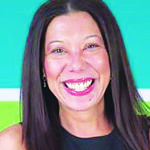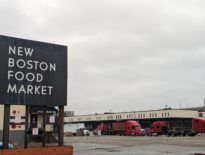
Malia Lazu
“Now that I have a seat at the table, the question I ask myself is, ‘How do I provide opportunity for others?’”
Those words were spoken by Ralph Parent, a Boston-based real estate developer, when we talked at the close of 2022. As an entrepreneur of color and a real estate developer, Parent credits his success to the mentorship he has received over the years. Now, it’s his turn: paying it forward by providing opportunities for others.
His mission paints a picture for all of us. As 2023 gets underway, this can be a year when we, at last, see genuine strides made toward greater diversity, equity, and inclusion in real estate development and elsewhere in the business world.
For too long, real estate development in Boston and nationwide has remained predominantly white and male. The problem is generational – long-standing and entrenched. It took many years to create this gap; therefore, it will take time to bridge the divide in wealth and economic opportunity so that knowledge, capital and project participation can flow more freely.
Change can only happen when we’re willing to acknowledge the inherent racism of the system in which people can be excluded so easily. It happens as the status quo is perpetuated: People who have always worked together in the past keep working together in the future. Doors are opened to only a select few; others remain shut out.
“How much opportunity has been missed because minorities and women have been excluded?” Parent asked.
It’s a question that should be pondered with more intentionality in this new year.
All it takes is one person who is willing to provide opportunities for others to learn and grow, and then scale from smaller projects to bigger ones. Success begets more success. The real estate industry needs to get on board with this wave of change, and for two simple reasons: Greater diversity and inclusion is good for the bottom line and good business.
The Value of Mentorship
Parent knows first-hand the benefits of being included. The son of Haitian immigrants and the youngest of five children, he grew up in subsidized housing in Brookline. He played football in high school and earned a scholarship to play at Boston College. After a year of professional football in Europe, he returned to the United States.
As Parent soul-searched for the right career, Brookline developer Merrill Diamond, who had coached him back in Little League baseball, offered to be his mentor. Parent began sitting in on meetings and learning the business from the ground up – sometimes literally.
Today, they are partners in Parent + Diamond Real Estate Development. They are also part of The Boston Partnership for Community Reinvestment, a joint venture of Parent + Diamond and Cambridge-based Urban Spaces LLC. Current projects include single-family home development in Dorchester and promoting affordable homeownership in partnership with the Boston Mayor’s Office of Housing.
Parent spoke with particular pride about The Boston Partnership for Community Reinvestment team, where he designed a diverse and inclusive team of an architect who is a woman from India and the civil engineer and general contractor are two Black men. This is how positive change begins: shifting the demographics of the industry, one person at a time.
“Over my years in development, I’ve seen the difficulties for minorities to get into large-scale development. It’s a very heavy lift,” Parent said. “You can’t just jump into it. You have to be guided into it.”
I have also seen this countless times in my own career, from neighborhoods to corporations, from community rooms to boardrooms: Economic growth comes from new ideas. Diversity of thinking and fresh perspectives are the direct result of becoming more inclusive of women and people of color. Doing business with more women- and minority-owned business enterprises (WMBEs) helps grows the proverbial pie, so there is more for everyone to share.
A Year for Change
As 2023 gets underway, calls for real change are getting louder. We’re seeing it among community advocacy groups that want to see an expansion of the Massport Model for greater diversity and inclusion in all aspects of the development process. We’re hearing it across communities and neighborhoods that desire more affordable housing and inclusive community development.
Now it’s time for real estate development to ensure more WMBEs are part of their development projects. When the people in real estate companies are representative of the communities in which development is happening, it is much easier to partner on the local level. Old antagonisms fade; alignment becomes possible.
While his plate is full of his current projects, Parent does not stop looking ahead. The next phase is moving into private equity and syndication, to help minorities build wealth through alternative investment vehicles.
“This is about creating partnerships, including people who have never before been asked to show what they can do,” Parent said. “All they need is the opportunity.”
Malia Lazu is a lecturer in the Technological Innovation, Entrepreneurship and Strategic Management Group at the MIT Sloan School of Management, CEO of The Lazu Group and former Eastern Massachusetts regional president and chief experience and culture officer at Berkshire Bank.





